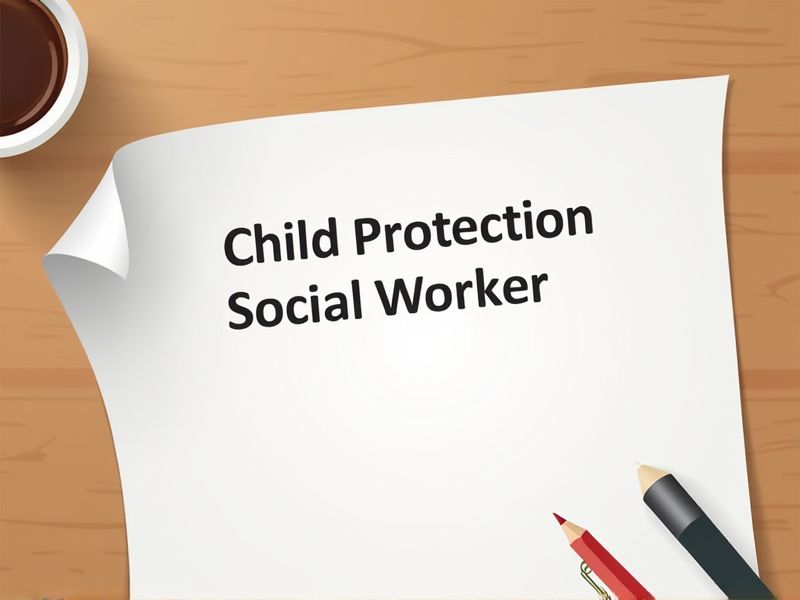
Child Protection Social Workers play a critical role in safeguarding vulnerable children, which demands specialized knowledge and skills. Certifications provide these professionals with evidence-based training in child welfare, risk assessment, and trauma-informed care. Having certain certifications ensures they are equipped to handle complex cases and make informed decisions regarding children's safety and well-being. Key certifications for a Child Protection Social Worker include those that enhance understanding of child development, legal standards, and ethical practices.
Certified Child Protection Specialist (CCPS)
Certified Child Protection Specialists (CCPS) are essential for child protection social workers because they provide standardized expertise and knowledge, ensuring consistent practices across different cases. This certification enhances the skills of social workers, allowing them to better recognize signs of abuse or neglect. It also fosters trust within communities, as parents and guardians feel assured of the professional competence in handling sensitive situations. The designation acts as a mark of professionalism, indicating that the specialist is committed to continual learning and adherence to best practices in child safety.
Licensed Clinical Social Worker (LCSW)
A Licensed Clinical Social Worker (LCSW) is needed in child protection to provide specialized mental health assessments, ensuring the psychological needs of vulnerable children are accurately identified. LCSWs offer evidence-based therapeutic interventions, which can significantly reduce trauma for children exposed to abuse or neglect. Their training enhances decision-making capabilities within child welfare settings, promoting informed judgments about long-term care arrangements. Integrated case management by LCSWs facilitates a coordinated approach, aligning services that enhance child safety and well-being.
Certified Social Work Case Manager (C-SWCM)
A Certified Social Work Case Manager (C-SWCM) provides specialized skills in navigating complex case management, critical for child protection social workers who deal with multifaceted family issues. This certification enhances the ability to efficiently assess, plan, and coordinate resources, ensuring child welfare cases are handled with the best possible outcomes. C-SWCM credentials also establish a standard of professional expertise, promoting trust and credibility among families and stakeholders. The structured training and ongoing education required for the certification keep social workers updated with the latest practices and policies, crucial for effectively responding to evolving child protection challenges.
Child Welfare Certification
Child Welfare Certification enhances a social worker's ability to apply specialized knowledge in child protection, which leads to more effective interventions. Certification provides standardized training that aligns with best practice guidelines, reducing variance in service quality. Social workers with certification are better equipped to navigate complex child welfare laws and regulations, ensuring compliance and safeguarding vulnerable populations. Certification acts as a professional benchmark that validates competence and dedication, increasing trust with families and colleagues.
Trauma-Informed Care Certification
Trauma-Informed Care Certification equips child protection social workers with essential tools to recognize and address the psychological impact of trauma on children, which directly enhances their ability to provide effective support. Understanding trauma fosters a more compassionate approach, reducing the risk of re-traumatization during interventions and assessments. Certification ensures that social workers apply best practices, increasing the likelihood of successful long-term outcomes for children and families. With trauma awareness, social workers can more accurately assess situations, leading to informed decision-making in child welfare cases.
Forensic Interviewing Certification
Forensic Interviewing Certification provides child protection social workers with standardized techniques that improve the reliability of their interviews with children. This certification ensures that social workers adhere to legally defensible methods, reducing the potential for misinterpretation or leading questions. With proper certification, social workers can gather crucial information effectively, contributing to better case outcomes and child safety decisions. Being certified also enhances the credibility of social workers in court, thus strengthening their role in legal proceedings related to child protection.
Crisis Intervention Certification
Crisis Intervention Certification equips child protection social workers with specialized skills to effectively handle and de-escalate high-stress situations involving vulnerable children. Enhanced training in crisis intervention increases the likelihood of successful outcomes during emergency interventions, thereby improving the overall safety and well-being of at-risk children. Certified social workers are better prepared to identify early signs of distress and respond promptly, minimizing potential harm or trauma. A standard level of competency is ensured among professionals, fostering consistent and reliable child protection practices across the board.
Domestic Violence Awareness Certification
Obtaining a Domestic Violence Awareness Certification enables child protection social workers to recognize and address signs of domestic abuse effectively. Enhanced awareness assists social workers in creating safer environments for children who may be indirectly or directly affected by domestic violence. The certification equips professionals with essential intervention techniques, contributing to more comprehensive and informed case management. It fosters an understanding of the complex dynamics within households impacted by violence, ultimately supporting better child welfare outcomes.
Mandatory Reporter Training Certification
Mandatory Reporter Training Certification is needed for Child Protection Social Workers because it ensures they are equipped to identify potential signs of abuse or neglect accurately. It provides them with a clear understanding of the legal responsibilities and processes in reporting such cases. The training enhances their ability to communicate effectively with law enforcement and other agencies involved in child protection. By standardizing this knowledge, it reduces the risk of misreporting and ensures a consistent approach in safeguarding children's welfare.
Cultural Competence in Social Work Certification
Cultural competence in social work certification is vital for child protection social workers because it equips them to effectively understand and respect diverse family backgrounds, impacting trust-building with families. A lack of this competence can lead to misinterpretations of cultural behaviors and practices, potentially causing harm or misjudgment. Certified social workers are better prepared to navigate cultural nuances that affect children's safety and well-being. The certification leads to improved communication, ensuring interventions are culturally sensitive and appropriate.
Summary
With certifications, you can enhance your credibility and trustworthiness as a Child Protection Social Worker. Acquiring specialized skills through training often leads to more effective case management and intervention strategies. You may also find additional career advancement opportunities and increased job security due to your improved qualifications. Increased proficiency typically results in better outcomes for children and families under your care.
